Your Marketing Map
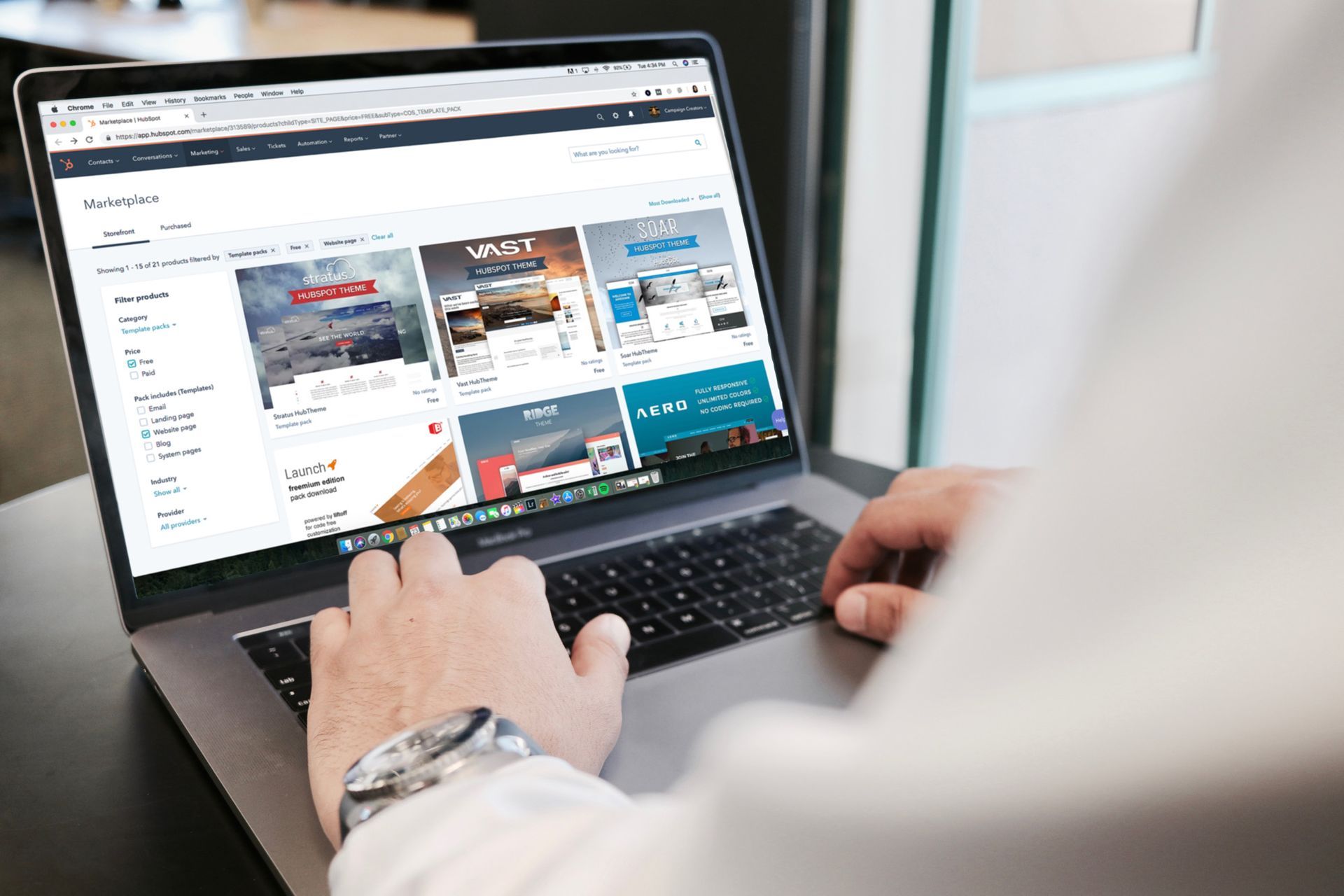
July 11, 2021
DIY website builders have flourished in popularity over the years, and with good reason. With the increase in applications for new US businesses hitting a 13-year high in 2020 , many new business owners find themselves in need of a quick, digital presence. In addition to the benefits of having an SEO-friendly website , a digital presence gives your customers a place to go to collect information about your services and availability. The question, then, is how to get a website off the ground quickly. If your hands are full filing for permits, hiring new talent, and sourcing new customers, you might not have time to become an expert in website development and marketing. That’s where two possible solutions come into play: use a DIY website builder or hire a professional web development agency to get you started. Not sure which option is right for you? Let’s dig in. The Benefits of a DIY Builder A DIY web builder allows anyone to build a website from scratch. Without having to know how to code, these helpful tools offer startups, entrepreneurs, and even larger companies the opportunity to personally design and maintain their websites. These solutions are often very cost-effective, running you only a few dollars per month. You can launch a website in just a couple of days once you’ve written content and decided on a design direction. Built-in themes mean you don’t need to be a professional designer to have a sleek, modern-looking website. The DIY website builder is designed for simplicity, with drag-and-drop functionality and automatic scaling so your site looks great on desktop, mobile, and tablet views. Many of these builders will have built-in security, hosting, and simple SEO plug-ins, simplifying the process of running a professional, secure website. The Benefits of an Agency Working with an agency means you will have a custom, carefully crafted website built by professionals. This option is often best for companies with no marketing experience, who need a lot of customization, or who want to perfect their digital presence to drive leads and sales. An agency will help you write catchy, sales-driven content for your website. With a professional eye for design, they can assist with branding suggestions in addition to general design work. A seamless user experience on your website is key, and they come equipped with the know-how to provide that. You’ll have the ability to customize both the design of the website and the functionality of the website, including app integrations. Often, an agency will provide customer support with important, skilled tasks like search engine optimization (SEO) and ongoing content or marketing needs. How to Make the Decision To choose between a DIY builder and a professional agency, consider a few core questions: Do you have the skills necessary to create a professional website with a solid user experience? Customers will make an immediate decision about your company based on what they see on your website. A poorly designed website can cost a fortune in the long run if it drives customers away. Do you have the funds to hire a professional agency? A DIY builder will, typically, cost substantially less than hiring a team of professionals to write, design, and launch your website. Do you need a lot of customization? While some DIY builders can handle customization through app integrations or plug-ins, true customization is best done with the help of a professional team. If you plan to drive most of your sales via your website, it might be worth the expense to build a website that answers that call. We’re Here to Help Regardless of which tactic you choose, The Creative Freeway is available to make your life easier. With a DIY website builder and a team of professionals, we have the service that fits your goals. Let’s chat .
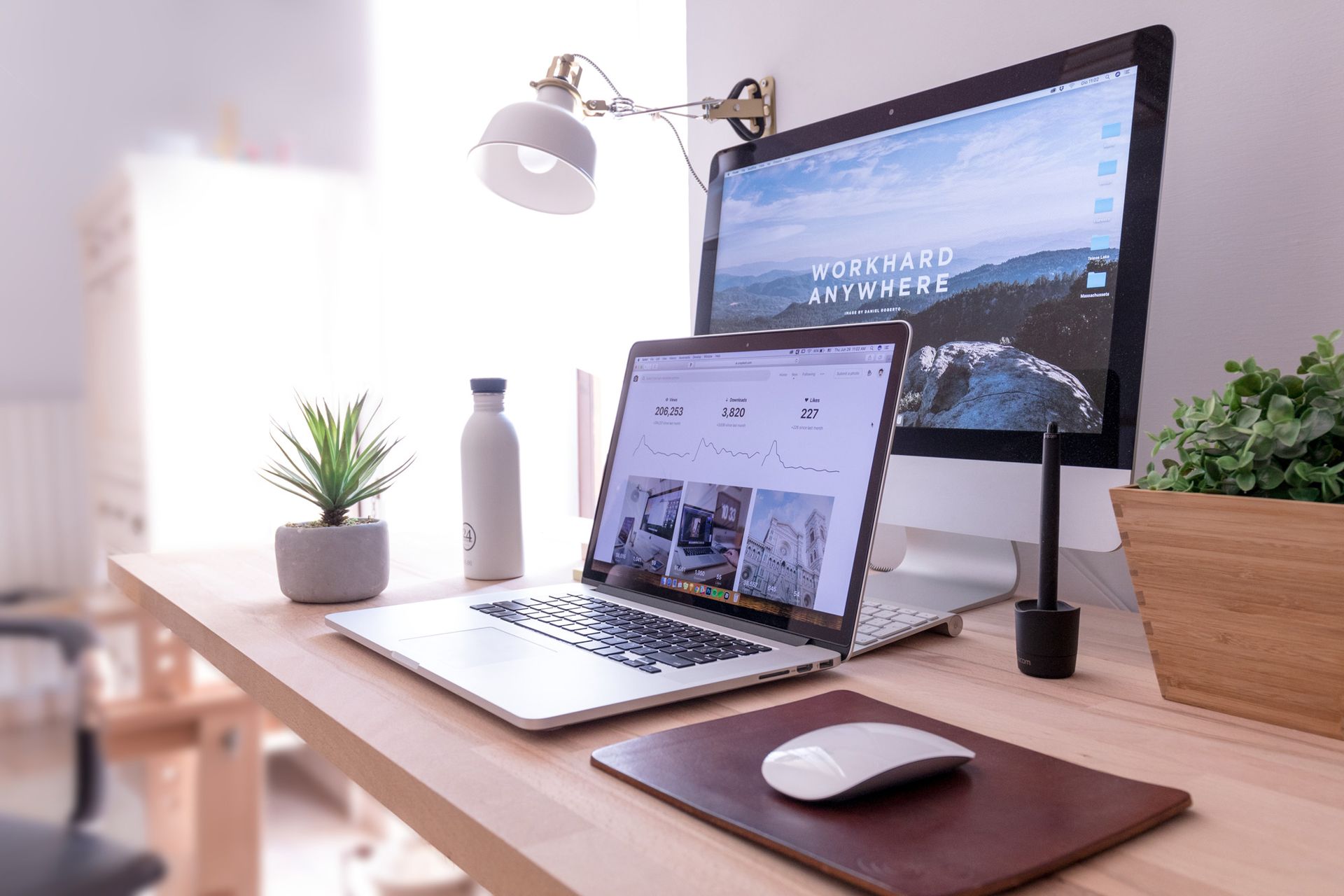
July 11, 2021
Business automation comes in many forms, but regardless of the project, the primary benefit remains the same: to make your life easier. Whether you’re a tiny team looking to reduce workload or a major corporation hoping to standardize workflows, business automation is the answer for many office troubles.

July 11, 2021
In their excitement over a new business venture, many professionals are in a rush to get a new website up and running. Existing businesses, too, may see their competitio n polishing their web presences and decide it’s time for a facelift on their own website. In this time of haste, many turn to DIY website builders, which allow just about anyone to create a website without any background in coding. These are great, cost-effective tools, but here are a few questions to consider before moving forward. Is my branding in place? First, if you’re going to take on the design of your company’s website, be sure that you have a brand image in place. Most DIY builders make it easy to design a website without much experience, but your website will be representing your company. Logos, colors, and fonts should be standardized, from the sign on your building to your emails to your business cards and, yes, definitely to your website. Do I have content for the website? Similar to your brand image, your brand voice is important. Will you be professional and informative? Quirky and conversational? Hip and young? If you’re converting an old website to a new website via a DIY builder, it might just be a matter of refreshing the language and filling in any holes you uncover when giving your website a fresh look. If you are building a website from scratch, consider what your customers want and need to see on your site . What templates are available to me? The big benefit of a DIY builder is that you don’t need to be a design expert to put together a really nice looking website. This is because these tools come with pre-built templates that help lay information out in a way that’s pleasing and chic. If possible, view the templates that your prospective DIY builders offer to make sure they include page designs that fit your needs. How will I handle SEO? If you’re not an expert in websites or marketing, SEO (search engine optimization) may not be top of mind, but it’s one of the most important parts of your website . Look for a DIY builder that includes at least a basic SEO plugin, which will allow you to nominate specific ke ywords for your pages and set meta descriptions. If that sounds overwhelming, contract with a knowledgeable freelancer to do occasional SEO work on your website. Is the website builder customizable? While the easy-to-use templates are one of the biggest draws for DIY website builders, customization is also an important factor to consider. Can your website builder integrate with a pps that offer additional functionality, like forms and automation? Does it offer SEO plugins or the ability to customize your navigation? Can you add a blog ? Once you build a website on a website builder, you have to either stick with its limits or start from scratch when y ou outgrow it, so consider what features you might need in the future when you’re growing like crazy! How easy is it to edit the content? A DIY builder won’t do you much good if ongoing maintenance is difficult to manage. Websites require regular updates, not only because businesses evolve but because it’s good for SEO. So, this question is simple: is it easy to use? How much does it cost and what extra features does it include? And, finally, the most obvious question: how much does a DIY builder cost? Many of these programs will cost only a few dollars per month, but remember that the l ess you pay, the simpler your website will be. When considering cost, ask yourself what additional features this builder offers. Does it include hosting? Does it offer security protections ? Are there SEO plugins, a responsive design, or social share features? Whether you’re looking for a DIY builder that meets your needs or an agency to build a custom website for you, The Creative Freeway is your solution. Let’s discuss your needs today!
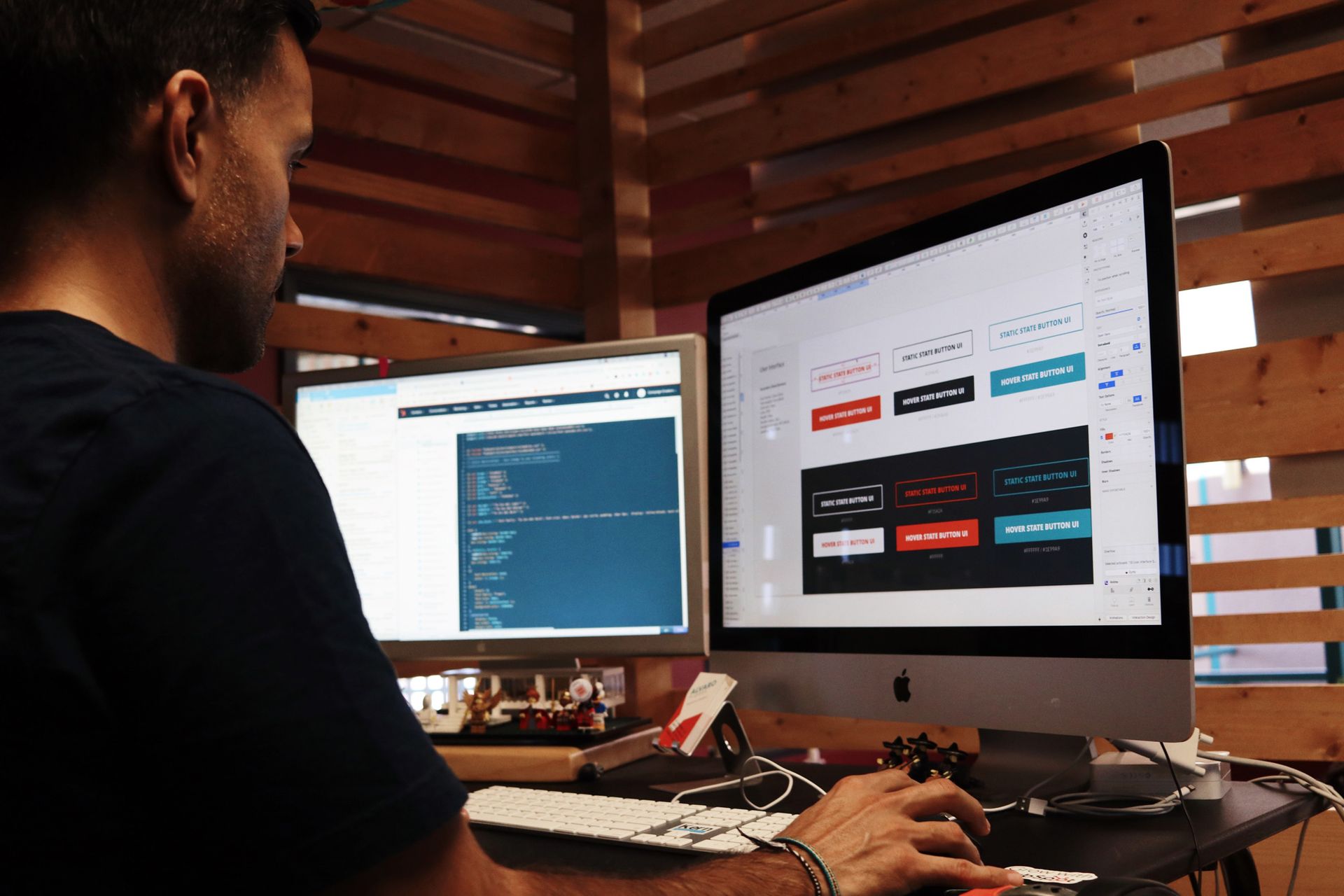
January 21, 2021
If you’re new to website creation or marketing in general, you may be a bit overwhelmed by all the jargon. What’s a bounce rate, where does organic traffic come from, how does navigation impact user experience, where can I find my meta descriptions? While The Creative Freeway is available to answer all of these questions for you and more, let’s step back and cover the basics: landing page vs website. What’s the difference?
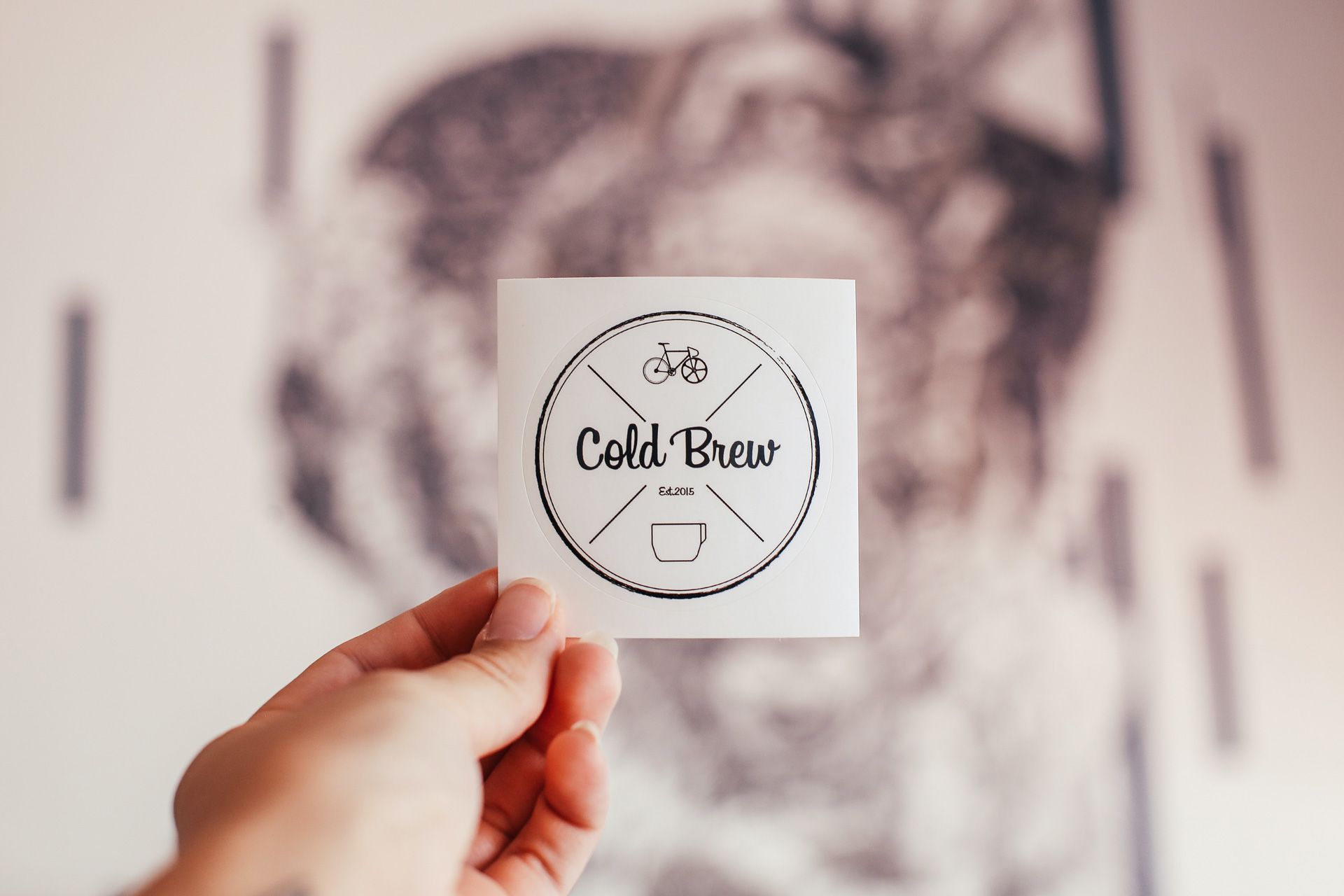
January 21, 2021
A good logo is the backbone of your company in many ways. It is the core of your brand identity. It’s the representation of your name, your values, your product, your team, and so much more. You and your customers will be looking at this logo on collateral, emails, websites, and swag for years to come. So, figuring out how to design a good logo is key. Worse, a bad logo can do more than just send the wrong message about your company. If designed poorly, it can be difficult to read and difficult to incorporate into designs, making it a nightmare to work with in the long run. Before you start to pick out colors and fonts, ask yourself these three questions.
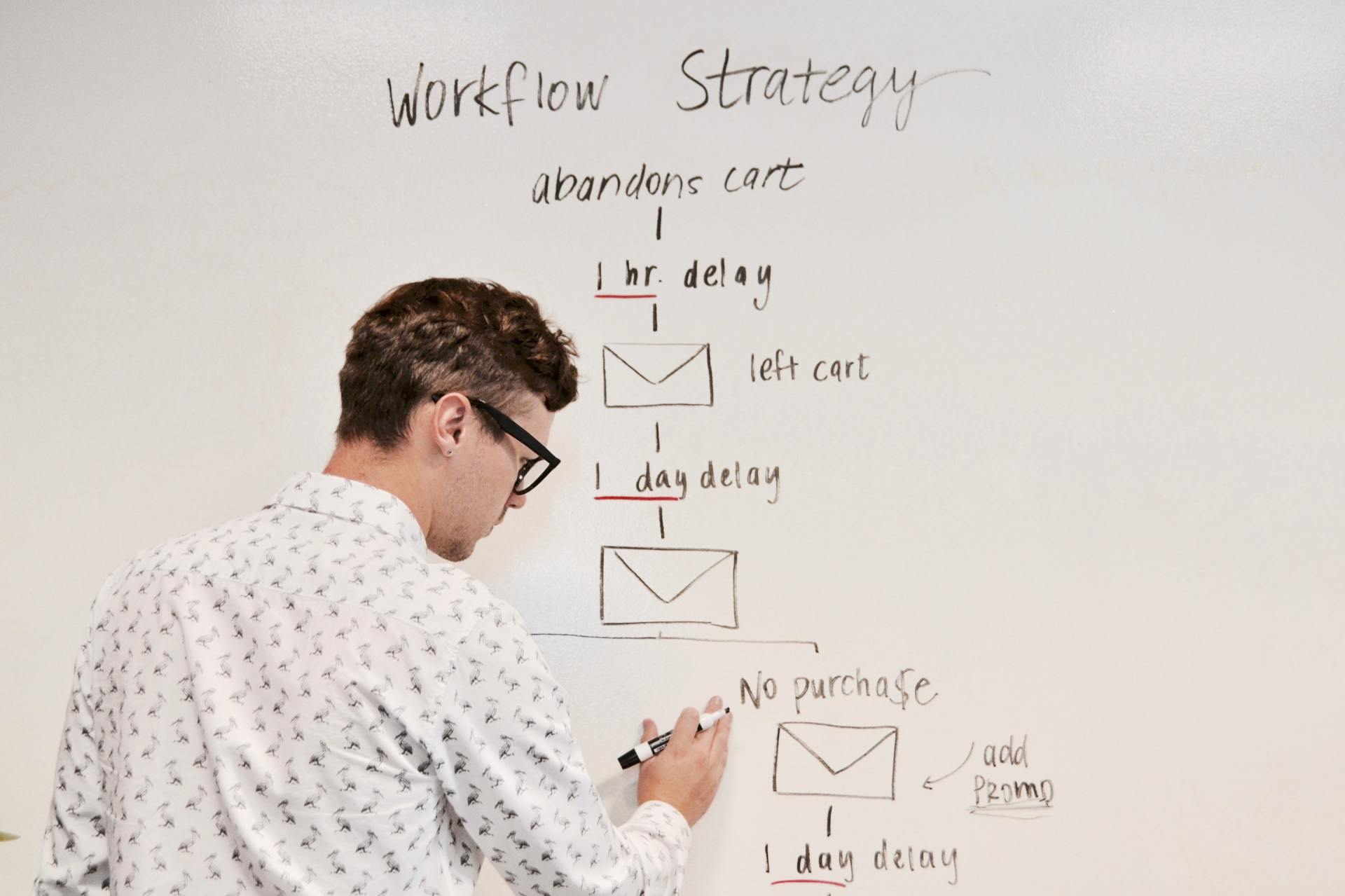
January 21, 2021
Planning and a solid strategy got you to this point: you created the product or service for your startup. You got the framework of your business in place. You’re up and running. Now it’s time to get customers—which means it’s time to create a marketing plan. Just like the first steps of your business, a simple marketing plan requires a solid strategy. Before you investigate marketing technology, outline your ideal social media campaign, or put money behind advertising, you need to consider these five things.
Tips and Tricks
Resources
Our Recent Posts

July 11, 2021
DIY website builders have flourished in popularity over the years, and with good reason. With the increase in applications for new US businesses hitting a 13-year high in 2020 , many new business owners find themselves in need of a quick, digital presence. In addition to the benefits of having an SEO-friendly website , a digital presence gives your customers a place to go to collect information about your services and availability. The question, then, is how to get a website off the ground quickly. If your hands are full filing for permits, hiring new talent, and sourcing new customers, you might not have time to become an expert in website development and marketing. That’s where two possible solutions come into play: use a DIY website builder or hire a professional web development agency to get you started. Not sure which option is right for you? Let’s dig in. The Benefits of a DIY Builder A DIY web builder allows anyone to build a website from scratch. Without having to know how to code, these helpful tools offer startups, entrepreneurs, and even larger companies the opportunity to personally design and maintain their websites. These solutions are often very cost-effective, running you only a few dollars per month. You can launch a website in just a couple of days once you’ve written content and decided on a design direction. Built-in themes mean you don’t need to be a professional designer to have a sleek, modern-looking website. The DIY website builder is designed for simplicity, with drag-and-drop functionality and automatic scaling so your site looks great on desktop, mobile, and tablet views. Many of these builders will have built-in security, hosting, and simple SEO plug-ins, simplifying the process of running a professional, secure website. The Benefits of an Agency Working with an agency means you will have a custom, carefully crafted website built by professionals. This option is often best for companies with no marketing experience, who need a lot of customization, or who want to perfect their digital presence to drive leads and sales. An agency will help you write catchy, sales-driven content for your website. With a professional eye for design, they can assist with branding suggestions in addition to general design work. A seamless user experience on your website is key, and they come equipped with the know-how to provide that. You’ll have the ability to customize both the design of the website and the functionality of the website, including app integrations. Often, an agency will provide customer support with important, skilled tasks like search engine optimization (SEO) and ongoing content or marketing needs. How to Make the Decision To choose between a DIY builder and a professional agency, consider a few core questions: Do you have the skills necessary to create a professional website with a solid user experience? Customers will make an immediate decision about your company based on what they see on your website. A poorly designed website can cost a fortune in the long run if it drives customers away. Do you have the funds to hire a professional agency? A DIY builder will, typically, cost substantially less than hiring a team of professionals to write, design, and launch your website. Do you need a lot of customization? While some DIY builders can handle customization through app integrations or plug-ins, true customization is best done with the help of a professional team. If you plan to drive most of your sales via your website, it might be worth the expense to build a website that answers that call. We’re Here to Help Regardless of which tactic you choose, The Creative Freeway is available to make your life easier. With a DIY website builder and a team of professionals, we have the service that fits your goals. Let’s chat .

July 11, 2021
Business automation comes in many forms, but regardless of the project, the primary benefit remains the same: to make your life easier. Whether you’re a tiny team looking to reduce workload or a major corporation hoping to standardize workflows, business automation is the answer for many office troubles.

July 11, 2021
In their excitement over a new business venture, many professionals are in a rush to get a new website up and running. Existing businesses, too, may see their competitio n polishing their web presences and decide it’s time for a facelift on their own website. In this time of haste, many turn to DIY website builders, which allow just about anyone to create a website without any background in coding. These are great, cost-effective tools, but here are a few questions to consider before moving forward. Is my branding in place? First, if you’re going to take on the design of your company’s website, be sure that you have a brand image in place. Most DIY builders make it easy to design a website without much experience, but your website will be representing your company. Logos, colors, and fonts should be standardized, from the sign on your building to your emails to your business cards and, yes, definitely to your website. Do I have content for the website? Similar to your brand image, your brand voice is important. Will you be professional and informative? Quirky and conversational? Hip and young? If you’re converting an old website to a new website via a DIY builder, it might just be a matter of refreshing the language and filling in any holes you uncover when giving your website a fresh look. If you are building a website from scratch, consider what your customers want and need to see on your site . What templates are available to me? The big benefit of a DIY builder is that you don’t need to be a design expert to put together a really nice looking website. This is because these tools come with pre-built templates that help lay information out in a way that’s pleasing and chic. If possible, view the templates that your prospective DIY builders offer to make sure they include page designs that fit your needs. How will I handle SEO? If you’re not an expert in websites or marketing, SEO (search engine optimization) may not be top of mind, but it’s one of the most important parts of your website . Look for a DIY builder that includes at least a basic SEO plugin, which will allow you to nominate specific ke ywords for your pages and set meta descriptions. If that sounds overwhelming, contract with a knowledgeable freelancer to do occasional SEO work on your website. Is the website builder customizable? While the easy-to-use templates are one of the biggest draws for DIY website builders, customization is also an important factor to consider. Can your website builder integrate with a pps that offer additional functionality, like forms and automation? Does it offer SEO plugins or the ability to customize your navigation? Can you add a blog ? Once you build a website on a website builder, you have to either stick with its limits or start from scratch when y ou outgrow it, so consider what features you might need in the future when you’re growing like crazy! How easy is it to edit the content? A DIY builder won’t do you much good if ongoing maintenance is difficult to manage. Websites require regular updates, not only because businesses evolve but because it’s good for SEO. So, this question is simple: is it easy to use? How much does it cost and what extra features does it include? And, finally, the most obvious question: how much does a DIY builder cost? Many of these programs will cost only a few dollars per month, but remember that the l ess you pay, the simpler your website will be. When considering cost, ask yourself what additional features this builder offers. Does it include hosting? Does it offer security protections ? Are there SEO plugins, a responsive design, or social share features? Whether you’re looking for a DIY builder that meets your needs or an agency to build a custom website for you, The Creative Freeway is your solution. Let’s discuss your needs today!

January 21, 2021
If you’re new to website creation or marketing in general, you may be a bit overwhelmed by all the jargon. What’s a bounce rate, where does organic traffic come from, how does navigation impact user experience, where can I find my meta descriptions? While The Creative Freeway is available to answer all of these questions for you and more, let’s step back and cover the basics: landing page vs website. What’s the difference?

January 21, 2021
A good logo is the backbone of your company in many ways. It is the core of your brand identity. It’s the representation of your name, your values, your product, your team, and so much more. You and your customers will be looking at this logo on collateral, emails, websites, and swag for years to come. So, figuring out how to design a good logo is key. Worse, a bad logo can do more than just send the wrong message about your company. If designed poorly, it can be difficult to read and difficult to incorporate into designs, making it a nightmare to work with in the long run. Before you start to pick out colors and fonts, ask yourself these three questions.

January 21, 2021
Planning and a solid strategy got you to this point: you created the product or service for your startup. You got the framework of your business in place. You’re up and running. Now it’s time to get customers—which means it’s time to create a marketing plan. Just like the first steps of your business, a simple marketing plan requires a solid strategy. Before you investigate marketing technology, outline your ideal social media campaign, or put money behind advertising, you need to consider these five things.

January 21, 2021
After a late-night research session, you’ve come up with a list of the small business marketing ideas that are going to skyrocket sales and make you a household name. You’re ready to take Google by storm, to be the most-followed influencer on Instagram, and to create a wow! website that converts. The next morning, you remember that you have big ambition, but you’re a compact team. That’s okay! Small business and startup marketing have a whole host of tools available to make your job easier (and some of them are free). Here’s a few to get you started.
We’re Ready to Work With You.
Tell us about your business and we’ll give you a free quote.
Site Links
Our Services
Contact Info
Email Us Today
Our Location
Located In Marietta, Georgia
© 2025
All Rights Reserved | The Creative Freeway
